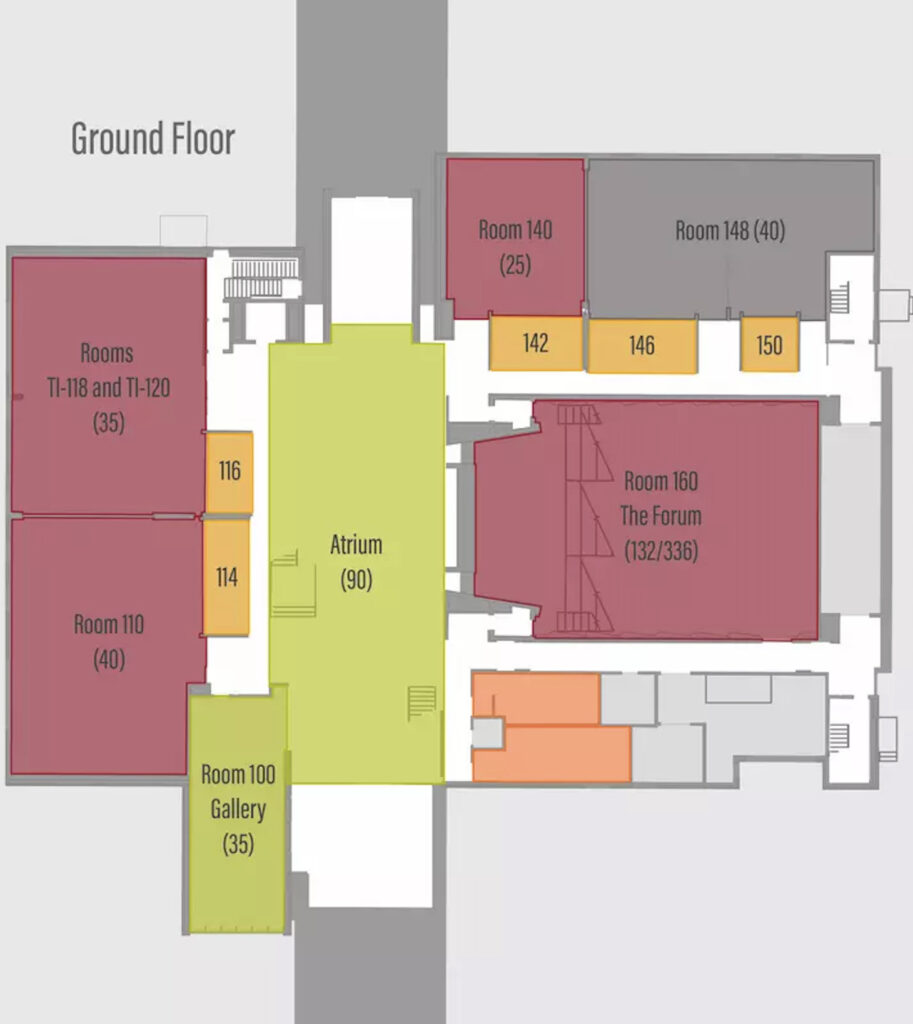Topics and Schedule are subject to change.
Schedule


Speaker Descriptions
| Topic | Description |
| Nature Connections: A Walking Curriculum | Presented By: Christina Pickles Children build relationships and learn about their world through play. What can this look like outdoors? How can children build a relationship with the trees, flowers and grass? In this session, we will consider the benefits of nurturing a connection to the natural world and directly experience activities that can support this important connection. Join me outside to explore simple ways to foster and explore nature connection in any environment. |
| Supporting Neurodivergent students at Home | Presented By: Bani Puri In this 45-minute session for homeschooling parents, explore how ADHD, Learning Disabilities, and other neurodevelopmental differences impact learning, emotions, and behaviour. Learn how self-regulation and executive functions develop, and discover practical, strength-based strategies to reframe behaviours, support skill-building, and “lend your prefrontal cortex” to help your child thrive. |
| Raising Financially Independent Children: A Simple System for Homeschooling Families | Presented By: Cash Smart for Life This practical workshop is designed for homeschooling families who want to raise confident, capable children with real-world money skills—without needing to be financial experts themselves. Parents will walk away with clarity & confidence on beginning meaningful financial education at home. What Parents Will Learn Part 1: Why Money Lessons Matter Now Part 2: 3 Common Mistakes Parents Make Part 3: 3 Simple Shifts That Work ● Homeschooling parents of children ages 3 to 13 Takeaways and Next Steps By the end of the workshop, parents will: ● Understand where they can start when teaching their children about money management ● Learn to teach money with intention, not stress or guilt ● Be invited to visit the presenters’ booth, pick up our $5 Starter Kit, and book a free call to learn more |
| It Starts with You: Mental Wellness as the Core of Homeschool Success | Presented By: Fightress Aaron, MBA, MS, LPC, NCC Subtitle: Evidence-based strategies to calm the nervous system, reduce burnout, and help every family member thrive. Description: Homeschooling isn’t just about curriculum — it’s about the well-being of everyone at the center of it. When parents, children, or partners are unwell, the nervous system shifts into survival mode, creating barriers to learning, teaching, and connection. In this workshop, licensed professional counsellor and homeschooling mom Fightress Aaron will guide families in understanding how mental wellness across the whole household lays the foundation for homeschool success. Drawing on a trauma-informed lens, Internal Family Systems (IFS), somatic practices, and her lived experience raising three neurodivergent children, she will share practical, evidence-based strategies to calm the nervous system, reduce burnout, and strengthen resilience. Participants will leave with tools to care for themselves, support their partners, and nurture their children, creating a homeschool environment where the entire family can truly thrive. www.nbcounselingllc.com www.wellnessoasispikeroad.com |
| Unlocking Potential: Homeschooling for Diverse Learners | Presented By: Alisha Brignall Every child learns differently, and homeschooling gives families the flexibility to adapt education to their child’s unique strengths and challenges. This session will focus on practical strategies and resources for accommodating students with additional needs in a home education setting. We’ll explore ways to adjust curriculum, create supportive learning environments, and incorporate tools and assistive technology. Parents will gain insight into balancing structure with flexibility, fostering independence, and connecting with community supports. Whether your child needs extra help with focus, literacy, executive functioning, or other learning differences, you’ll leave with concrete ideas to make learning accessible, engaging, and empowering. |
| Sprinkle Some Sparkle: Real-life ways to add Curiosity, Creativity, and Flexibility to Everyday Learning. | Presented By: Lyndsay Prasad & Carley Jackson Does your homeschool feel a little stuck in routine? This idea-packed session will help you breathe new life into your days. We’ll explore practical ways to plan and weave variety, curiosity, and delight into your learning environment—without sacrificing academic progress. |
| Learning with Loose Parts in Home Education | Presented By: Karlee Zelmer Loose parts—everyday items like blocks, shells, fabric, sticks, or recycled materials—can spark creativity, problem-solving, and deeper learning at home. This session will introduce the concept of loose parts as a flexible teaching strategy for homeschoolers. We’ll explore how open-ended materials encourage exploration in math, science, literacy, and the arts, while also building critical thinking and collaboration skills. Parents will leave with practical ideas for gathering and organizing loose parts, guiding learning without over-directing, and weaving this playful, hands-on approach into everyday homeschooling. |
| Why homeschool? Ways to meet the challenges of Home Education | Presented By: Golda David This presentation explores the compelling reasons families choose to homeschool and highlights how it can often be a preferable path for children’s growth and development. We’ll examine the systemic shortcomings of traditional schooling, revealing why it doesn’t serve all students effectively, and discuss strategies to improve the homeschooling experience—even for seasoned educators. Join us for a deeper conversation on cultivating deeply connected, endlessly curious children who develop a genuine love of learning. Together, we’ll explore how embracing personalized education fosters not only academic success but also emotional resilience and lifelong passion for discovery. |
| Why and How to Bring Different Languages Alive at Home? | Presented By: Sonia NDing Do you want your children to grow up confident in more than one language — but aren’t sure where to start, or how to keep it fun? Many parents feel pressure to pass on their mother tongue or support bilingual learning, but language is more than words. It carries culture, emotions, and belonging. In this workshop, you’ll explore the “why” behind your family’s language goals and learn how to find a balanced motivation that doesn’t rely on guilt or fear. You’ll also discover playful, practical strategies to bring languages alive at home and to match different learning styles. Come away with new insight, fresh ideas, and encouragement to make language learning a joyful part of your family life — no matter where you’re starting from. |
| Making It Work: Budgeting and Income Strategies for Homeschool Families | Presented By: Sue Music Homeschooling doesn’t have to break the bank. Making It Work: Budgeting and Income Strategies for Homeschool Families is a hands-on workshop designed to help families find practical ways to afford homeschooling without unnecessary stress. Together, we will: Explore at-home and flexible income opportunities that fit around homeschooling. Share resources, discounts, and creative cost-cutting ideas for curriculum, activities, and household expenses. Work through exercises to prioritize needs versus wants, and set realistic financial goals. Brainstorm as a group to exchange strategies and encouragement. You’ll leave with a personalized action plan, fresh ideas for generating income and saving money, and the confidence that homeschooling is financially doable for your family, PLUS some. |
| Homeschooling with Purpose, Prosperity, and Peace | Presented By: Seema Khan Homeschooling is more than an alternative to traditional education, it’s a conscious way of living and learning together. When guided by purpose, it gives direction and meaning; when nurtured with prosperity, it cultivates growth and connection; and when grounded in peace, it allows both parent and child to thrive with calm and confidence. This talk explores how to bring intention, balance, and fulfillment into your homeschooling journey. |
| High School at Home: Exploring Every Path | Panel Discussion Facilitated By: Michelle Goulet & Dianne Liwanag Homeschooling through high school opens the door to many possibilities, but navigating the options can feel overwhelming. This session will explore the different paths available to homeschoolers in the high school years—whether your teen is preparing for university, college, trades, the workforce, or a non-traditional route. We’ll look at ways to design a flexible, personalized plan, meet requirements, and tap into resources that support your teen’s goals. Parents will come away with practical tools and a big-picture view of how to help their high schooler thrive while keeping future opportunities open. |
| Raising High-Performers: What Every Parent Should Know | Presented by: San Kim This presentation provides a broad overview of best practices for supporting high-performing students, emphasizing the need for thoughtful, challenging instruction and strategies that go beyond simply labelling students or assigning harder work. It highlights the importance of motivation, resilience, and opportunities for discovery, while advocating for differentiated approaches and a supportive educational environment that helps every student reach their potential. |
| Embracing Failure: Increasing Risk Taking to Build Confidence in Education | Presented by: Paul Marlett Many educators will say that they value risk-taking in their students. But what does that really mean? Are your students excited to share the WRONG answer, and even more, celebrate when they make mistakes? What is the sweet spot for student success when it comes to learning new skills? A 30 to 50% failure rate may be the optimal number for student learning. How do we define success when it comes to learning? Join me for a discussion on Failure and how it can push students forward. This session is designed to help educators look at their practice through a lens of continual progress. What I found out changed how I approached skill development, from literacy to physical skills to learning Algebra. Walk away from this session with some perspective on building skills and continual student growth. If students are getting 80 to 100% correct, they may not be progressing, but merely practicing. |
| Creating Connection in the Teen/Tween Years | Presented by: Lindsay Law Raising the incredible humans in your home is full of shifts and transitions, and this couldn’t be more true for the teen/tween years. You may have hit the teen/tween years and felt like the game has changed, and you are correct! Your teen/tween needs a different approach to keep the connection going. Snuggles and endless bedtime stories may not be what your teen is looking for anymore, but they still want connection. Come learn the new steps to the teen/tween parenting dance and why they are so important! |


